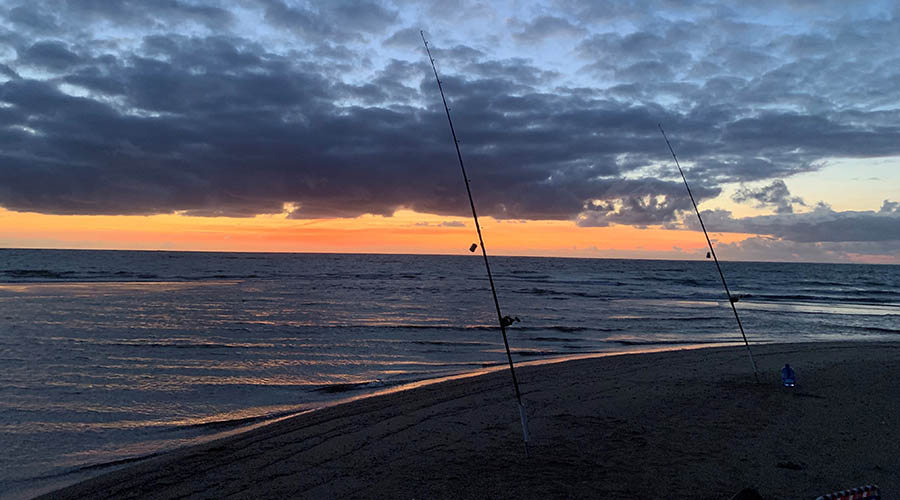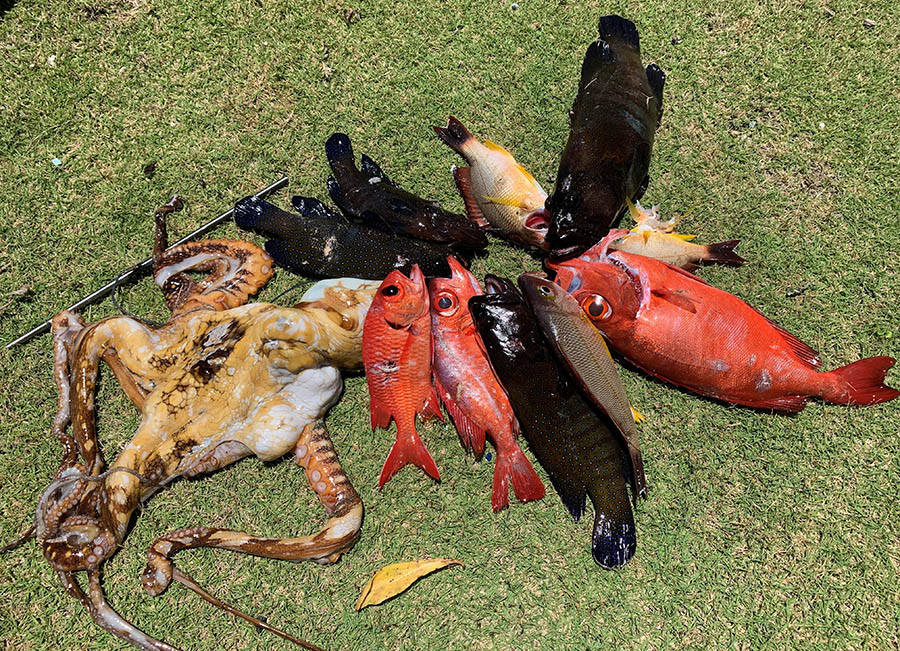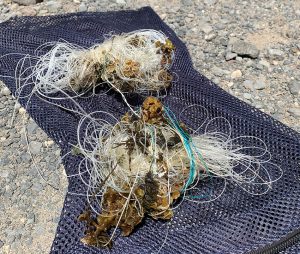1/31/25 – Beyond the rule book – simple actions that can help secure the future for lawaiʻa
If you’re like me, fishing is an ongoing learning process where along the way knowledge and experience gained changes your perspective. We start as small kids armed with scoopnet and bucket, become teenagers venturing out into deeper waters to find our own adventures, and in the blink of an eye find ourselves as adults with a developed understanding of how, when, and where to fish. At some point in our journey, we begin to realize that we all have a kuleana, a responsibility as skilled lawaiʻa that goes beyond what is written in black in white in a rulebook. For most this is rooted in the realization that resources are finite, and to ensure that future generations can fish like us we need to embrace our role as caretaker of what we love. Here are five examples of simple non-regulatory actions lawaiʻa can take to make a difference.

Fish Consciously
Fishing consciously means fishing with intent, knowing and understanding the impact we may have and how it can be controlled though our actions. This begins with paying attention to what we take home. For example, choosing to diversify our catch, or keep a variety of fish rather than targeting only one species alone means that we control our impact on any one resource. Tailor what you take at every spot depending on what appears healthy and abundant, and let rare or struggling species recover.
Controlling how we fish can also have an impact. This can be as simple as choosing to go up in hook size to avoid catching small fish you don’t want to keep or selecting a correct mesh size for your thrownet to reduce the chance of gilling undersized fish. By keeping in mind the pros and cons of your gear choices, you can minimize your impact to the environment and non-target species.
Lastly, making conscious decisions about where and when to fish can help to protect our fisheries. Old time lawaiʻa often compare fishing to farming, knowing when to harvest and when to let rest and grow. While this knowledge is built on years of experience and observation, a good rule of thumb is to try and spread your effort around to different locations. For example, if you have a good day of targeting kole in one spot, let the area rest in the months after to give the fish a pass and let them replenish the area.

Practice Kilo
The knowledge most lawaiʻa use to guide their actions is commonly based in observational science, known in Hawaiian as kilo. Kilo is based in the practice of observing the world around you while paying attention to connections between the different things you see. For lawaiʻa, this can mean noticing connection between fish behavior and tide, weather, current, season, and even what’s happening on land. Kilo can be a powerful tool used to catch more fish, but it can also guide your path to making mindful and sustainable choices about how, when, where, and what you harvest.
Make Your Voice Heard
“Why would I speak up? It’s not going to matter what I say anyway.” I get it, sometimes it feels like concerns are falling on deaf ears. However, the truth is that today lawaiʻa can and do often have a big influence on management decisions in Hawaiʻi. Start by attending an in person or virtual DAR Holoholo Talk Story Session, scoping session, or public hearing. Go even further by providing oral or written testimony on proposed legislation or a new rule. And remember, no shame – when you speak of your experiences as a lawaiʻa you are the subject matter expert. Share your thoughts and experiences whether for or against.
Mālama
 Getting hooks stuck on the reef and breaking off lead on the bottom is a part of fishing. It happens. And while it isn’t great to leave fishing gear behind, the main thing is that we take steps to compensate for our impact. Lose some line on the bottom? No problem, just pick up some ʻōpala on your way out. Break off some lead? Just make sure you pick up the same number or more on your next tako dive. React to one negative event with at least one positive one.
Getting hooks stuck on the reef and breaking off lead on the bottom is a part of fishing. It happens. And while it isn’t great to leave fishing gear behind, the main thing is that we take steps to compensate for our impact. Lose some line on the bottom? No problem, just pick up some ʻōpala on your way out. Break off some lead? Just make sure you pick up the same number or more on your next tako dive. React to one negative event with at least one positive one.
Volunteering your time to take part in community workdays is another effective yet fulfilling way to give back. There are a ton of different organizations around the state offering opportunities to take part directly in restoration and enhancement. And remember, what happens on land impacts the ocean too. Volunteering to restore loʻi kalo, clear invasive grasses, and restoration up mauka can help improve fishery health in the long run too.
Tell The Story
In this age of social media, once guarded information about fishing is now free at our fingertips. While this is great in some ways, the lessons learned through following the lead of older generations is often lost. Concepts like patience, perseverance, conduct, and kuleana unfortunately aren’t easily taught in a single post or edited video. If you’re a skilled lawaiʻa, take time to impart your knowledge on younger generations. They will after all be the caretakers long after we’re gone.
Bryan Ishida – Aquatic Biologist, O‘ahu

